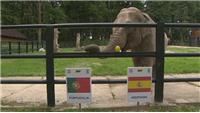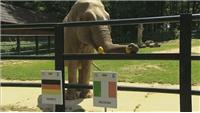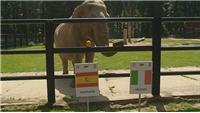
Poznan

Province: Wielkopolska (Greater Poland)
Population: 557,000
Area: 265km²
Motto: Poznan: Eastern energy, Western style
Poznan is a city on the Warta river in west-central Poland, with a population of 556,022 in June 2009. It is among the oldest cities in Poland, and was one of the most important centres in the early Polish state, whose first rulers were buried at Poznan's cathedral. It is sometimes claimed to be the first capital of the kingdom of Poland.
Poznan is now Poland's fifth largest city. It is the historical capital of the Wielkopolska ("Greater Poland") region, and is currently the administrative capital of the province called Greater Poland Voivodeship.
Poznan is an important centre of trade, industry, and education, and hosts regular international trade fairs. It was the host city for the United Nations Climate Change Conference in December 2008, a key stage in the creation of a successor to the Kyoto Protocol. Poznan was a candidate city for European Capital of Culture in 2016.
THINGS TO SEE
The Old Town contains most of Poznan's tourist attractions, all centred on the beautiful Stary Rynek. Laid out in 1253 the cobblestone square's focal point is the town hall, which houses the Historical Museum of Poznan and the most unusual of clocks. At noon tourists gather to watch as two metal goats appear through a pair of small doors and butt horns 12 times. Legend has it that at the clock's unveiling two goats escaped the kitchens and wound up fighting above the cloaked timepiece. Its maker was duly ordered to capture the moment.
Stary Rynek is also home to museums devoted to musical instruments, archeology, history, the Wielkopolska Uprising and the military, while the nearby National Museum holds an extensive art collection. The cradle of Poznan, Ostrów Tumski, is 1km east of the Old Town and dominated by the 14th-century cathedral though fires in 1622, 1772 and 1945 each brought major facelifts. By contrast, across the road St Mary's Church is possibly the most untouched Gothic building in the city.
Fan zone: Plac Wolnosci (Freedom Square)
Poznan's 30,000-capacity fan zone, located close to the bus and train stations, will centre on one enormous 120m² screen and will open for the duration of the tournament from 12.00 to 01.00 local time on matchdays, 16.00 to 00.00 on non-matchdays. It is free to enter and will broadcast all 31 matches live, though at other times there will be plenty of entertainment such as football skill tests, five-a-side pitches, live concerts and DJ sets, as well as offer a full range of food and beverages.
TRANSPORT
To and from
Poznan-Ławica airport is 7km west of the city and has daily flights to Warsaw as well as regular links to Copenhagen, Dublin, Stockholm, Barcelona, Germany and England. Poznan Główny railway station in the heart of the city offers the best domestic service with about 20 daily services to Warsaw (3-4 hours). Frequent trains run to Wroclaw (2.5 hours), Gdańsk (4 hours) and Kyiv (18 hours) and there are also direct services to Berlin, Cologne and Moscow.
Distances to other UEFA EURO 2012 venues
Wroclaw – 175km Gdańsk – 305km Warsaw – 320km
Lviv – 700km Kyiv – 1,140km Kharkiv – 1,570km Donetsk – 1,785km
In and around
The city is serviced by trams and buses, usually painted green and yellow. Tickets are available from kiosks, shops and MPK outlets, typically displaying the MPK logo and are available for 24 hours and one week, while for single journeys there is a choice: a time or distance ticket. With the exception of rush hour and roadworks, it is generally better value for money to go for the time option. MPK also hire out bicycles. There is also the Poznan Fast Tram (Poznanski Szybki Tramwaj), which currently runs north from the city centre though another line is under construction.
Municipal Stadium Poznan

Briefly the biggest club ground in Poland before the completion of arenas in Wroclaw and Gdańsk.
UEFA Capacity: 40,000
Record attendance: 45,000 (KKS Lech Poznan 0-1 RTS Widzew Łódź on 08/04/1984)
Opened: 1980 (reopened September 2010)
Close to the city's airport, the Municipal Stadium is renowned for its excellent atmosphere. Renovation work began in 2003 to briefly make it the biggest club ground in Poland before the completion of EURO venues in Wroclaw and Gdańsk
A goal from Manuel Arboleda set Lech on course for a 2-0 victory over FC Salzburg in their first game at the revamped stadium on 30 September 2010, in the UEFA Europa League group stage.
The Municipal Stadium, scene of Spain's 2006 UEFA European Under-19 Championship triumph, hosted its first senior international on 17 November 2010 as two Robert Lewandowski goals helped Poland to a 3-1 win against the Ivory Coast.
This is the sixth stadium Lech have called home in their 90-year history, since starting out on an unremarkable pitch near Grzybowa Street in the south of the city.
Hot News
- Funny Balotelli!
- Spanish fans celebrate Euro Cup win
- That's German WAGS!
- The sexy female fans in Euro 2012
- Euro 2012: Spain fans celebrate victory
- Spain vs Italy in clash of the Euro WAGs
- Euro 2012 Final - Spain 4 : 0 Italy, Part 2
- Germany knocked out by Italy
- Natalia Siwiec blasts Sol and the BBC
- Coleen Rooney reveals her bikini body secrets
- Italy's fans celebrated wildly
- Euro 2012 Final - Spain 4 : 0 Italy, Part 1
| Rank | Team | W/D/L | Pts |
|---|
Cities & Stadiums
The Top 3 Teams of Previous Tournaments
| Year | Winners | Runner-up | Third place |
|---|---|---|---|
| 2008 | Spain | Germany | Russia / Turkey |
| 2004 | Greece | Portugal | Netherlands / Czech Republic |
| 2000 | France | Italy | Netherlands / Portugal |
| 1996 | Germany | Czech Republic | France / England |
| 1992 | Denmark | Germany | Netherlands / Sweden |
| 1988 | Netherlands | Soviet Union | Italy / West Germany |
| 1984 | France | Spain | Denmark / Portugal |
| 1980 | West Germany | Belgium | Czechoslovakia |
| 1976 | Czechoslovakia | West Germany | Netherlands |
| 1972 | West Germany | Soviet Union | Belgium |
| 1968 | Italy | Yugoslavia | England |
| 1964 | Spain | Soviet Union | Hungary |
| 1960 | Soviet Union | Yugoslavia | Czechoslovakia |



